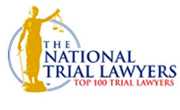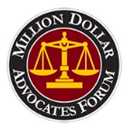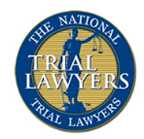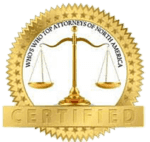DUI Penalties
Serving Bucks, Montgomery, Lehigh, Northampton and Philadelphia Counties
Criminal Defense Lawyers In Pennsylvania
The following is a general sentencing guide for Pennsylvania DUI Cases. It should not be relied upon as a prediction of what a person convicted of a PA DWI may receive. We strongly recommend that you contact an experienced Pennsylvania DUI attorney to go over the ranges of possible sentences and other consequences in your case.
GENERAL IMPAIRMENT (BAC .08 – .10)
- FIRST OFFENSE GENERAL IMPAIRMENT – FINES: $300; JAIL: no jail time, but mandatory minimum 6 months of probation with attendance at an approved alcohol highway safety school and compliance with all drug and alcohol treatment requirements. OTHER: up to 150 hours of community service
- SECOND OFFENSE GENERAL IMPAIRMENT – FINES: $300 – $2,500; JAIL: no less than 5 days – 6 months; LICENSE SUSPENSION: 1 year suspension; OTHER: attendance at an approved alcohol highway safety school and compliance with all drug and alcohol treatment requirements, 1 year mandatory installation of an ignition interlock device, and up to 150 hours community service.
- THIRD OR SUBSEQUENT OFFENSE GENERAL IMPAIRMENT – FINES: $500 – $5,000; JAIL: not less than 10 days – 2 years in prison; LICENSE SUSPENSION: 1 year suspension; OTHER: compliance with all drug and alcohol treatment requirements, 1 year mandatory installation of an ignition interlock device, and up to 150 hours community service.
HIGH RATE OF BLOOD ALCOHOL (.10 – .159)
- FIRST OFFENSE HIGH BAC – FINES: $500 – $5,000; JAIL: 48 hours – up to 6 months; LICENSE SUSPENSION: 12 months suspension; OTHER: attendance at an approved alcohol highway safety school and compliance with all drug and alcohol treatment requirements. OTHER: up to 150 hours community service.
- SECOND OFFENSE HIGH BAC – FINES: $750 – $5,000; JAIL: 30 days – 6 months; LICENSE SUSPENSION: 1 year suspension; OTHER: mandatory attendance at alcohol safety school, compliance with all drug and alcohol treatment requirements, 1 year mandatory installation of an ignition interlock device, and up to 150 hours community service.
- THIRD OFFENSE HIGH BAC – FINES: $1,500 – $10,000; JAIL: 90 days – 5 years in prison; LICENSE SUSPENSION: 18 month suspension; OTHER: compliance with all drug and alcohol treatment requirements, 1 year mandatory installation of an ignition interlock device, and up to 150 hours community service.
- FOURTH OR SUBSEQUENT OFFENSE HIGH BAC – FINES: $1,500 – $10,000; JAIL: 1 – 5 years in prison; LICENSE SUSPENSION: 18 month suspension; OTHER: compliance with all drug and alcohol treatment requirements, 1 year mandatory installation of an ignition interlock device, and up to 150 hours community service.
HIGEST RATE OF BLOOD ALCOHOL (.16 AND HIGHER)
- FIRST OFFENSE HIGHEST BAC – FINES: $1,000 – $5,000; JAIL: 72 hours – 6 months; LICENSE SUSPENSION: 1 year suspension; OTHER: mandatory attendance at alcohol safety school and compliance with all drug and alcohol treatment requirements, up to 150 hours of community service.
- SECOND OFFENSE HIGHEST BAC – FINES: $1,500 – $10,000; JAIL: 90 days – 5 years in prison; LICENSE SUSPENSION: 18 month suspension; OTHER: mandatory attendance at alcohol safety school, compliance with all drug and alcohol treatment requirements, 1 year mandatory installation of an ignition interlock device, and up to 150 hours of community service.
- THIRD OR SUBSEQUENT OFFENSE HIGHEST BAC – FINES: $2,500 – $10,000; JAIL: 1 – 5 years in prison; LICENSE SUSPENSION: 18 months; OTHER: compliance with all drug and alcohol treatment requirements, 1 year mandatory installation of an ignition interlock device, and up to 150 hours community service.
HIGH RATE OF BLOOD ALCOHOL THAT CAUSES SERIOUS BODILY INJURY OR PROPERTY DAMAGE
- FIRST OFFENSE HIGH BAC SERIOUS BODILY INJURY/PROPERTY DAMAGE – FINES: $500 – $5,000; JAIL: mandatory minimum 48 hours in jail; OTHER: mandatory attendance at alcohol highway safety school, compliance with all drug and alcohol treatment requirements, and up to 150 hours community service.
- SECOND OFFENSE HIGH BAC SERIOUS BODILY INJURY/PROPERTY DAMAGE – FINES: $750 – $5,000; JAIL: mandatory minimum 30 days in jail; OTHER: mandatory attendance at alcohol highway safety school, compliance with all drug and alcohol treatment requirements, and up to 150 hours community service.
- THIRD OFFENSE HIGH BAC SERIOUS BODILY INJURY/PROPERTY DAMAGE – FINES: $1,500 – $10,000; JAIL: mandatory minimum 90 days; OTHER: mandatory compliance with all drug and alcohol treatment requirements and up to 150 hours community service.
- FOURTH OR SUBSEQUENT OFFENSE HIGH BAC SERIOUS BODILY INJURY/PROPERTY DAMAGE – FINES: $1,500 – $10,000; JAIL: mandatory minimum 1 year in prison; OTHER: mandatory compliance with all drug and alcohol treatment requirements and up to 150 hours community service.
COMMERCIAL VEHICLES (BAC .04 OR HIGHER)
- FIRST OFFENSE DUI – FINES: $500 – $5,000; JAIL: mandatory minimum not less than 48 hours; LICENSE SUSPENSION: one year disqualification from operating a commercial vehicle (or 3 years if transporting hazardous materials at the time of the offense); OTHER: mandatory attendance at alcohol highway safety school, compliance with alcohol treatment requirements imposed by sentencing judge, and up to 150 hours community service.
- SECOND OFFENSE DUI – FINES: $750 – $5,000; JAIL: mandatory minimum 30 days; LICENSE SUSPENSION: lifetime disqualification from operating a commercial vehicle (may be reduced to a period not less than 10 years); OTHER: mandatory attendance at alcohol highway safety school, compliance with alcohol treatment requirements imposed by sentencing judge, and up to 150 hours community service.
- THIRD OFFENSE DUI – FINES: $1,500 – $10,000; JAIL: mandatory minimum 90 days in jail; LICENSE SUSPENSION: lifetime disqualification from operating a commercial vehicle (may be reduced to a period not less than 10 years); OTHER: mandatory compliance with alcohol treatment requirements imposed by sentencing judge, and up to 150 hours community service.
- FOURTH OR SUBSEQUENT OFFENSE DUI – FINES: $1,500 – $10,000; JAIL: at least 1 year; LICENSE SUSPENSION: lifetime disqualification from operating a commercial vehicle (may be reduced to a period not less than 10 years); OTHER: mandatory compliance with alcohol treatment requirements imposed by sentencing judge, and up to 150 hours community service.
MINORS (BAC .02 OR HIGHER) AGES 18 – 21
[Minors under the age of 18 also face an automatic license suspension for a period of 6 months, but such individuals are punished pursuant to the Pennsylvania Juvenile Act. Probation, institutionalization, and fines may be imposed.]
- FIRST OFFENSE DUI – FINES: $500 – $5,000; JAIL: mandatory minimum 48 hours; LICENSE SUSPENSION: 6 month automatic suspension; OTHER: mandatory attendance of alcohol highway safety school, compliance with all drug and alcohol treatment requirements, and up to 150 hours community service.
- SECOND OFFENSE DUI – FINES: $750 – $5,000; JAIL: mandatory minimum 48 hours; LICENSE SUSPENSION: 6 month automatic suspension; OTHER: mandatory attendance of alcohol highway safety school, compliance with all drug and alcohol treatment requirements, and up to 150 hours community service.
- THIRD OFFENSE DUI – FINES: $1,500 – $10,000; JAIL: mandatory minimum 90 days; LICENSE SUSPENSION: 6 month automatic suspension; OTHER: compliance with all drug and alcohol treatment requirements and up to 150 hours community service.FOURTH OR SUBSEQUENT DUI – FINES: $1,500 – $10,000; JAIL: mandatory minimum 1 year; LICENSE SUSPENSION: 6 month automatic suspension;
- OTHER: compliance with all drug and alcohol treatment requirements and up to 150 hours community service.
Life-changing results
Celebrating 50 years of victories
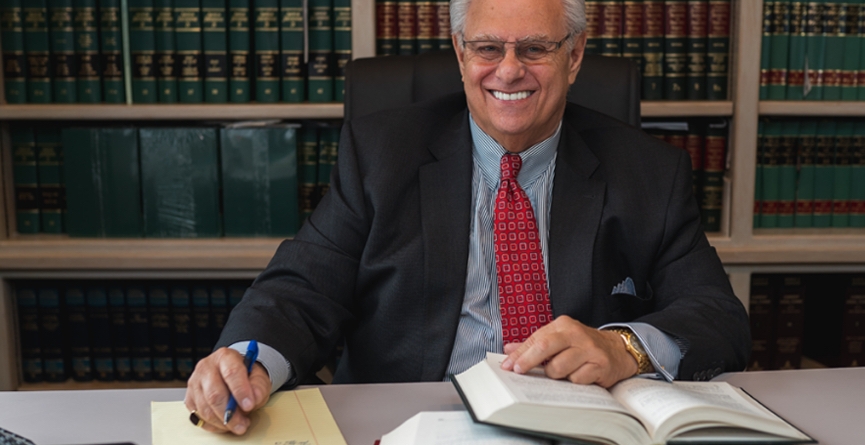
Pennsylvania DUI Penalties Statutes
Part III. Operation of Vehicles – Chapter 38. Driving After Imbibing Alcohol or Utilizing Drugs
3804. Penalties
(a) General impairment. Except as set forth in subsection (b) or (c), an individual who violates section 3802(a) (relating to driving under influence of alcohol or controlled substance) shall be sentenced as follows:
(1) For a first offense, to:
(i) undergo a mandatory minimum term of six months’ probation;
(ii) pay a fine of $300;
(iii) attend an alcohol highway safety school approved by the department; and
(iv) comply with all drug and alcohol treatment requirements imposed under sections 3814 (relating to drug and alcohol assessments) and 3815 (relating to mandatory sentencing).
(2) For a second offense, to:
(i) undergo imprisonment for not less than five days;
(ii) pay a fine of not less than $300 nor more than $2,500;
(iii) attend an alcohol highway safety school approved by the department; and
(iv) comply with all drug and alcohol treatment requirements imposed under sections 3814 and 3815.
(3) For a third or subsequent offense, to:
(i) undergo imprisonment of not less than ten days;
(ii) pay a fine of not less than $500 nor more than $5,000; and
(iii) comply with all drug and alcohol treatment requirements imposed under sections 3814 and 3815.
(b) High rate of blood alcohol; minors; commercial vehicles and school buses and school vehicles; accidents. Except as set forth in subsection (c), an individual who violates section 3802(a)(1) where there was an accident resulting in bodily injury, serious bodily injury or death of any person or damage to a vehicle or other property or who violates section 3802(b), (e) or (f) shall be sentenced as follows:
(1) For a first offense, to:
(i) undergo imprisonment of not less than 48 consecutive hours;
(ii) pay a fine of not less than $500 nor more than $5,000;
(iii) attend an alcohol highway safety school approved by the department; and
(iv) comply with all drug and alcohol treatment requirements imposed under sections 3814 and 3815.
(2) For a second offense, to:
(i) undergo imprisonment of not less than 30 days;
(ii) pay a fine of not less than $750 nor more than $5,000;
(iii) attend an alcohol highway safety school approved by the department; and
(iv) comply with all drug and alcohol treatment requirements imposed under sections 3814 and 3815.
(3) For a third offense, to:
(i) undergo imprisonment of not less than 90 days;
(ii) pay a fine of not less than $1,500 nor more than $10,000; and
(iii) comply with all drug and alcohol treatment requirements imposed under sections 3814 and 3815.
(4) For a fourth or subsequent offense, to:
(i) undergo imprisonment of not less than one year;
(ii) pay a fine of not less than $1,500 nor more than $10,000; and
(iii) comply with all drug and alcohol treatment requirements imposed under sections 3814 and 3815.
(c) Incapacity; highest blood alcohol; controlled substances. An individual who violates section 3802(a)(1) and refused testing of blood or breath or an individual who violates section 3802(c) or (d) shall be sentenced as follows:
(1) For a first offense, to:
(i) undergo imprisonment of not less than 72 consecutive hours;
(ii) pay a fine of not less than $1,000 nor more than $5,000;
(iii) attend an alcohol highway safety school approved by the department; and
(iv) comply with all drug and alcohol treatment requirements imposed under sections 3814 and 3815.
(2) For a second offense, to:
(i) undergo imprisonment of not less than 90 days;
(ii) pay a fine of not less than $1,500;
(iii) attend an alcohol highway safety school approved by the department; and
(iv) comply with all drug and alcohol treatment requirements imposed under sections 3814 and 3815.
(3) For a third or subsequent offense, to:
(i) undergo imprisonment of not less than one year;
(ii) pay a fine of not less than $2,500; and
(iii) comply with all drug and alcohol treatment requirements imposed under sections 3814 and 3815.
(d) Extended supervision of court. If a person is sentenced pursuant to this chapter and, after the initial assessment required by section 3814(1), the person is determined to be in need of additional treatment pursuant to section 3814(2), the judge shall impose a minimum sentence as provided by law and a maximum sentence equal to the statutorily available maximum. A sentence to the statutorily available maximum imposed pursuant to this subsection may, in the discretion of the sentencing court, be ordered to be served in a county prison, notwithstanding the provisions of 42 Pa.C.S. 9762 (relating to sentencing proceeding; place of confinement).
(e) Suspension of operating privileges upon conviction.–
(1) The department shall suspend the operating privilege of an individual under paragraph (2) upon receiving a certified record of the individual’s conviction of or an adjudication of delinquency for:
(i) an offense under section 3802; or
(ii) an offense which is substantially similar to an offense enumerated in section 3802 reported to the department under Article III of the compact in section 1581 (relating to Driver’s License Compact).
(2) Suspension under paragraph (1) shall be in accordance with the following:
(i) Except as provided for in subparagraph (iii), 12 months for an ungraded misdemeanor or misdemeanor of the second degree under this chapter.
(ii) 18 months for a misdemeanor of the first degree under this chapter.
(iii) There shall be no suspension for an ungraded misdemeanor under section 3802(a) where the person is subject to the penalties provided in subsection (a) and the person has no prior offense.
(iv) For suspensions imposed under paragraph (1)(ii), notwithstanding any provision of law or enforcement agreement to the contrary, all of the following apply:
(A) Suspensions shall be in accordance with Subchapter D of Chapter 15 (relating to the Driver’s License Compact).
(B) In calculating the term of a suspension for an offense that is substantially similar to an offense enumerated in section 3802, the department shall presume that if the conduct reported had occurred in this Commonwealth then the person would have been convicted under section 3802(a)(2).
(v) Notwithstanding any other provision of law or enforcement agreement to the contrary, the department shall suspend the operating privilege of a driver for six months upon receiving a certified record of a consent decree granted under 42 Pa.C.S. Ch. 63 (relating to juvenile matters) based on section 3802.
(f) Community service assignments. In addition to the penalties set forth in this section, the sentencing judge may impose up to 150 hours of community service. Where the individual has been ordered to drug and alcohol treatment pursuant to sections 3814 and 3815, the community service shall be certified by the drug and alcohol treatment program as consistent with any drug and alcohol treatment requirements imposed under sections 3814 and 3815.
(f.1) Victim impact panels.–
(1) In addition to any other penalty imposed under this section, the court may order a person who violates section 3802 to attend a victim impact panel program.
(2) A victim impact panel program shall provide a non-confrontational forum for driving under the influence crash victims, their family members, their friends or other pertinent persons to speak to driving under the influence offenders about the impact of the crash on victims’ lives and on the lives of families, friends and neighbors.
(3) A victim impact panel shall be administrated through the local office of probation and parole or other office as the court shall determine and shall be operated in consultation with the Mothers Against Drunk Driving – Pennsylvania State Organization.
(4) A victim impact panel program may assess a reasonable participation fee to achieve program self-sufficiency but may not operate for profit. The department shall establish an acceptable range of fees.
(5) The department shall develop standards and incentives to encourage counties to establish victim impact panel programs. In developing these standards, the department shall establish and chair a coordinating committee among pertinent agencies and organizations, including the Department of Health, the Pennsylvania Commission on Crime and Delinquency, the Office of Victim Advocate, the Administrative Office of Pennsylvania Courts, county officials, the Mothers Against Drunk Driving – Pennsylvania State Organization and the Pennsylvania DUI Association. The standards shall address items including all of the following:
(i) Prototype design and structure standards for victim impact panels.
(ii) Training standards and curricula for presenters, facilitators and administrators.
(iii) Operations policy and guidelines manual.
(iv) Evaluation standards, design and structure allowing for the tracking and analysis of recidivism data.
(v) Standards for counseling and debriefing activities for victim presenters.
(vi) Standards for reimbursing reasonable costs to victims for participation in panels.
(vii) Assistance to counties through coordinating potential Federal and State funding streams to carry out this subsection and to assist counties as may be needed.
(g) Sentencing guidelines. The sentencing guidelines promulgated by the Pennsylvania Commission on Sentencing shall not supersede the mandatory penalties of this section.
(h) Appeal. The Commonwealth has the right to appeal directly to the Superior Court any order of court which imposes a sentence for violation of this section which does not meet the requirements of this section. The Superior Court shall remand the case to the sentencing court for imposition of a sentence in accordance with the provisions of this section.
(i) First class cities. Notwithstanding the provision for direct appeal to the Superior Court, if, in a city of the first class, a person appeals from a judgment of sentence under this section from the municipal court to the common pleas court for a trial de novo, the Commonwealth shall have the right to appeal directly to the Superior Court from the order of the common pleas court if the sentence imposed is in violation of this section. If, in a city of the first class, a person appeals to the court of common pleas after conviction of a violation of this section in the municipal court and thereafter withdraws his appeal to the common pleas court, thereby reinstating the judgment of sentence of the municipal court, the Commonwealth shall have 30 days from the date of the withdrawal to appeal to the Superior Court if the sentence is in violation of this section.
(j) Additional conditions. In addition to any other penalty imposed under law, the court may sentence a person who violates section 3802 to any other requirement or condition consistent with the treatment needs of the person, the restoration of the victim to pre-offense status or the protection of the public.
(k) Non applicability. Except for subsection (e), this section shall not apply to dispositions resulting from proceedings under 42 Pa.C.S. Ch. 63 (relating to juvenile matters).
Part III. Operation of Vehicles – Chapter 38. Driving After Imbibing Alcohol or Utilizing Drugs
3813. Work release
In any case in which an individual is sentenced to a period of imprisonment as a result of a conviction for violating a provision of this chapter, the judicial officer imposing the sentence shall consider assigning that individual to a daytime work release program. Any work release program permitted under this section shall be certified by the Drug and Alcohol Treatment program administration as being consistent with any drug and alcohol treatment requirements imposed under section 3814 (relating to drug and alcohol assessments).
Part III. Operation of Vehicles – Chapter 38. Driving After Imbibing Alcohol or Utilizing Drugs
3814. Drug and alcohol assessments
If a defendant is convicted or pleads guilty or no contest to a violation of section 3802 (relating to driving under influence of alcohol or controlled substance), the following apply prior to sentencing:
(1) The defendant shall be evaluated under section 3816(a) (relating to requirements for driving under influence offenders) and any other additional evaluation techniques deemed appropriate by the court to determine the extent of the defendant’s involvement with alcohol or other drug and to assist the court in determining what type of sentence would benefit the defendant and the public.
(2) The defendant shall be subject to a full assessment for alcohol and drug addiction if any of the following subparagraphs apply:
(i) The defendant, within ten years prior to the offense for which sentence is being imposed, has been sentenced for an offense under:
(A) section 3802;
(B) former section 3731; or
(C) an equivalent offense in another jurisdiction.
(ii) Either:
(A) the evaluation under paragraph (1) indicates there is a need for counseling or treatment; or
(B) the defendant’s blood alcohol content at the time of the offense was at least .16%.
(3) The assessment under paragraph (2) shall be conducted by one of the following:
(i) The Department of Health or its designee.
(ii) The county agency with responsibility for county drug and alcohol programs or its designee.
(iii) The clinical personnel of a facility licensed by the Department of Health for the conduct of drug and alcohol addiction treatment programs.
(4) The assessment under paragraph (2) shall consider issues of public safety and shall include recommendations for all of the following:
(i) Length of stay.
(ii) Levels of care.
(iii) Follow-up care and monitoring.
Part III. Operation of Vehicles – Chapter 38. Driving After Imbibing Alcohol or Utilizing Drugs
3815. Mandatory sentencing
(a) County supervision. Notwithstanding the length of any maximum term of imprisonment imposed pursuant to sections 3803 (relating to grading) and 3804 (relating to penalties), and notwithstanding the provisions of section 17 of the act of August 6, 1941 (P.L. 861, No. 323), [FN1] referred to as the Pennsylvania Board of Probation and Parole Law, the sentencing judge may grant parole under the supervision of the county parole system to any offender serving a sentence for a violation of section 3802 (relating to driving under influence of alcohol or controlled substance) and, if applicable, serving any concurrent sentence of imprisonment for any misdemeanor offense arising from the same criminal episode as the violation of section 3802. The power of the sentencing judge to grant parole shall apply only to those offenders whose sentences are being served in a county prison pursuant to 42 Pa.C.S. 9762 (relating to sentencing proceeding; place of confinement) or section 3804(d). The sentencing judge shall declare his intention to retain parole authority and supervision at the time of sentencing in cases in which he would not otherwise have parole authority and supervision.
(b) Parole.–
(1) An offender who is determined pursuant to section 3814 (relating to drug and alcohol assessments) to be in need of drug and alcohol treatment shall be eligible for parole in accordance with the terms and conditions prescribed in this section following the expiration of the offender’s mandatory minimum term of imprisonment.
(2) The following shall be conditions of parole:
(i) If the offender is not determined under the procedures set forth in section 3814 to be addicted to alcohol or another substance, the offender must refrain from:
(A) the use of illegal controlled substances; and
(B) the abuse of prescription drugs, over-the-counter drugs or any other substances.
(ii) If the offender is determined under the procedures set forth in section 3814 to be addicted to alcohol or another substance, the offender must do all of the following:
(A) Refrain from:
(I) the use of alcohol or illegal controlled substances; and
(II) the abuse of prescription drugs, over-the-counter drugs or any other substances.
(B) Participate in and cooperate with drug and alcohol addiction treatment under subsection (c).
(c) Treatment.–
(1) Treatment must conform to assessment recommendations made under section 3814.
(2) Treatment must be conducted by a drug and alcohol addiction treatment program licensed by the Department of Health.
(3) The treatment program shall report periodically to the assigned parole officer on the offender’s progress in the treatment program. The treatment program shall promptly notify the parole officer if the offender:
(i) fails to comply with program rules and treatment expectations;
(ii) refuses to constructively engage in the treatment process; or
(iii) without authorization terminates participation in the treatment program.
(4) Upon notification under paragraph (3), the parole officer shall report the offender’s actions to the parole authority and to the department for compliance with section 1553(e) (relating to occupational limited license). The parole authority shall schedule a revocation hearing to consider recommendations of the parole officer and the treatment program.
(5) Nothing in this subsection shall prevent a treatment program from refusing to accept an offender if the program administrator deems the offender to be inappropriate for admission to the program. A treatment program shall retain the right to immediately discharge into the custody of the assigned parole officer an offender who fails to comply with program rules and treatment expectations or refuses to constructively engage in the treatment process.
(d) Enforcement.–
(1) This subsection applies to an offender ordered to participate in a treatment program under subsection (b)(2)(ii) who:
(i) fails to comply with program rules and treatment expectations;
(ii) refuses to constructively engage in the treatment process; or
(iii) terminates participation in the treatment program without authorization.
(2) Notwithstanding any other provision of law, all of the following apply to an offender under paragraph (1):
(i) The offender’s parole, prerelease, work release or any other release status shall be revoked.
(ii) The offender shall be ineligible for parole, prerelease, work release or any other release from the correctional facility prior to the expiration of the offender’s maximum term unless the offender is permitted to be readmitted to a treatment program.
(3) Nothing in this subsection shall be construed to grant a legal right to parole to an offender previously ineligible for parole, on the grounds that the offender is currently prepared to participate in, comply with and constructively engage in the treatment process. Under such circumstances, parole or reparole of the offender shall be at the parole authority’s discretion.
(e) Follow-up. After an offender has completed the treatment program under subsection (c), the parole officer shall take reasonable steps to ensure that the offender does not abuse alcohol, use illegal controlled substances or abuse prescription drugs, over-the-counter drugs or any other such substances. These reasonable steps include requiring chemical testing and periodic reassessment of the offender by the treatment program.
(f) Fees.–
(1) Except as set forth in paragraph (2), the parole authority shall impose upon an offender subject to this section reasonable fees to cover the cost of any of the following:
(i) Chemical testing of the offender required under this section.
(ii) An assessment of the offender required under this section.
(iii) Drug or alcohol treatment provided in accordance with the assessment.
(2) If the parole authority finds the offender to be unable to pay the full amount of the fees required by paragraph (1) and section 1541(d) (relating to period of disqualification, revocation or suspension of operating privilege), it shall require the offender to pay as much of the fee as is consistent with the offender’s ability to pay and shall direct the assigned parole officer to establish a reasonable payment schedule for the offender to pay as much of the remaining fees as is consistent with the offender’s ability to pay.
(g) Insurance.–
(1) This subsection shall only apply to a health insurance, health maintenance organization or other health plan required to provide benefits under section 602-A of the act of May 17, 1921 (P.L. 682, No. 284), [FN2] known as The Insurance Company Law of 1921.
(2) If an individual who is insured by a health insurance, a health maintenance organization or other health plan, that is doing business in this Commonwealth, the individual may not be deprived of alcohol and other drug abuse and addiction treatment or coverage within the scope of that plan due to the identification of an alcohol or other drug problem which occurs as a result of an assessment under this section.
(h) Additional funding. In order to support and augment the diagnostic assessment and treatment services provided under this section, the Department of Health, the department and the Pennsylvania Commission on Crime and Delinquency shall seek all available Federal funding, including funds available through the United States National Highway Traffic Safety Administration and the Department of Health and Human Services.




